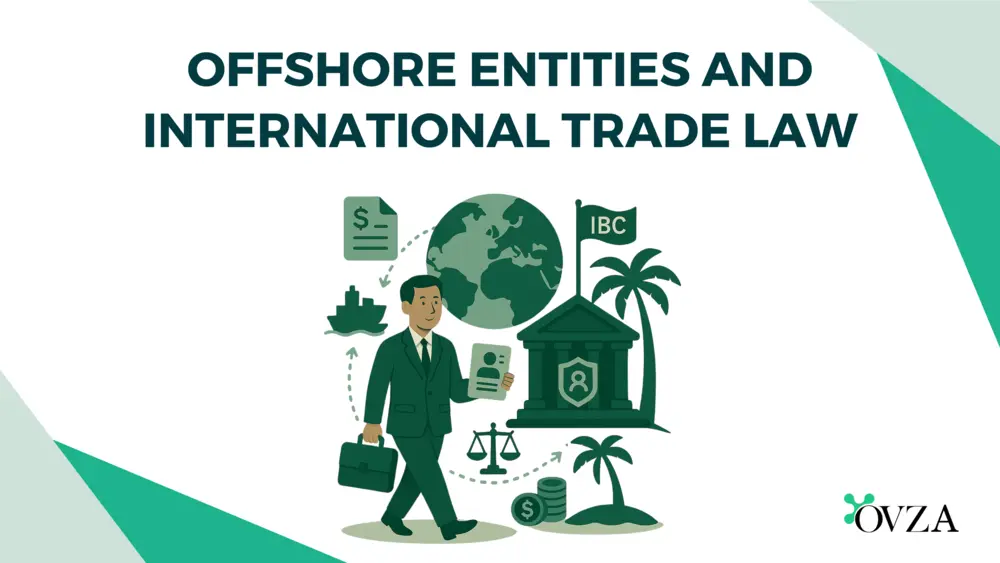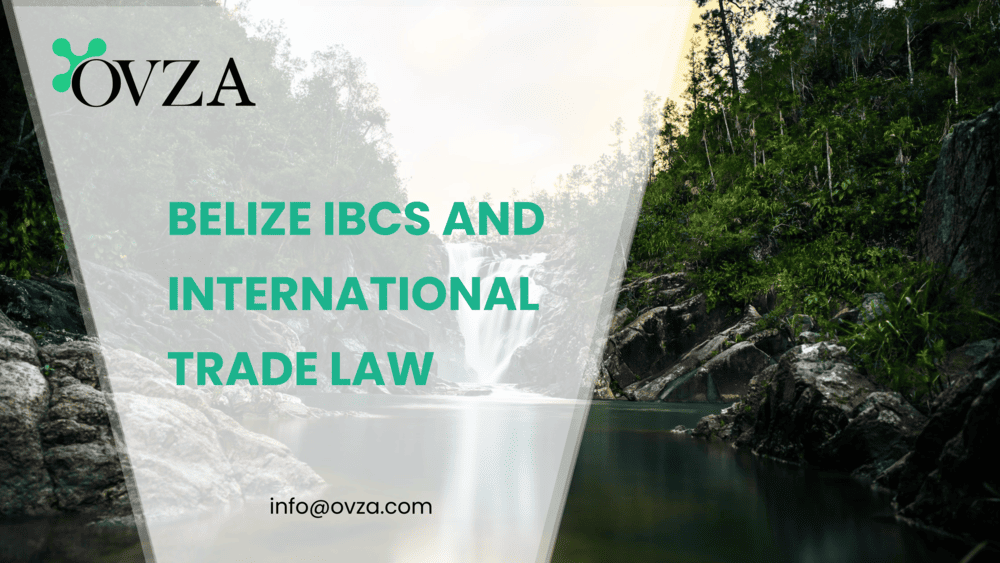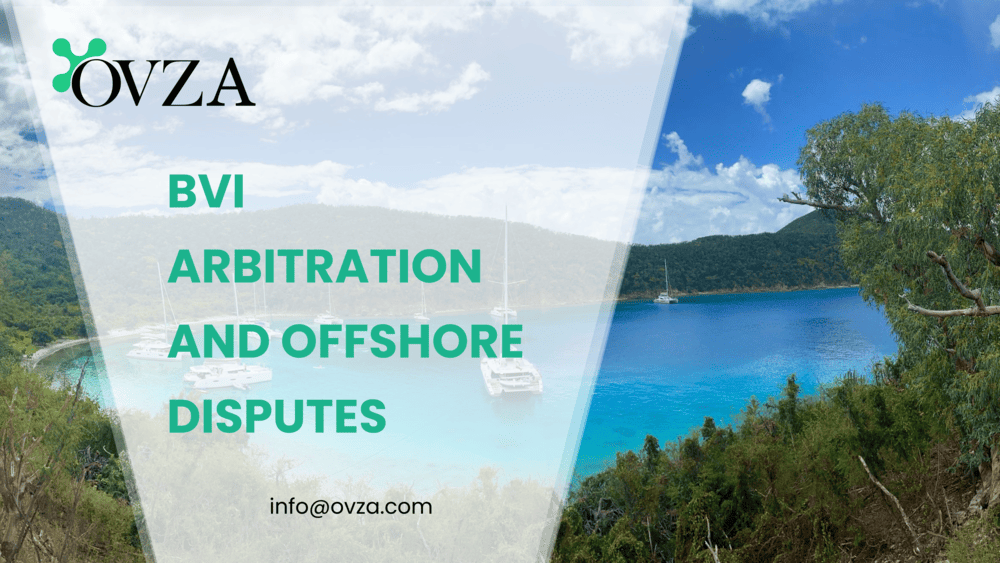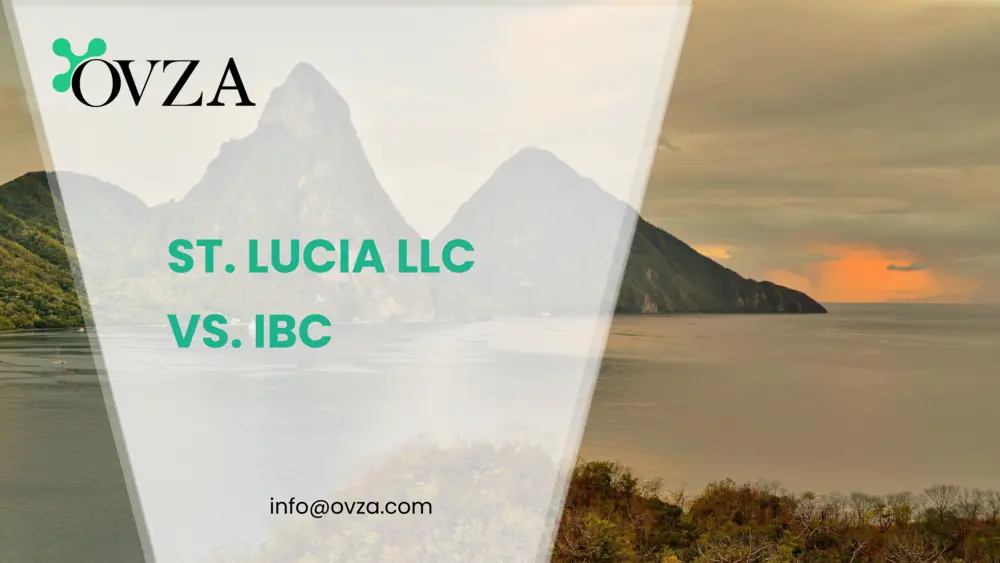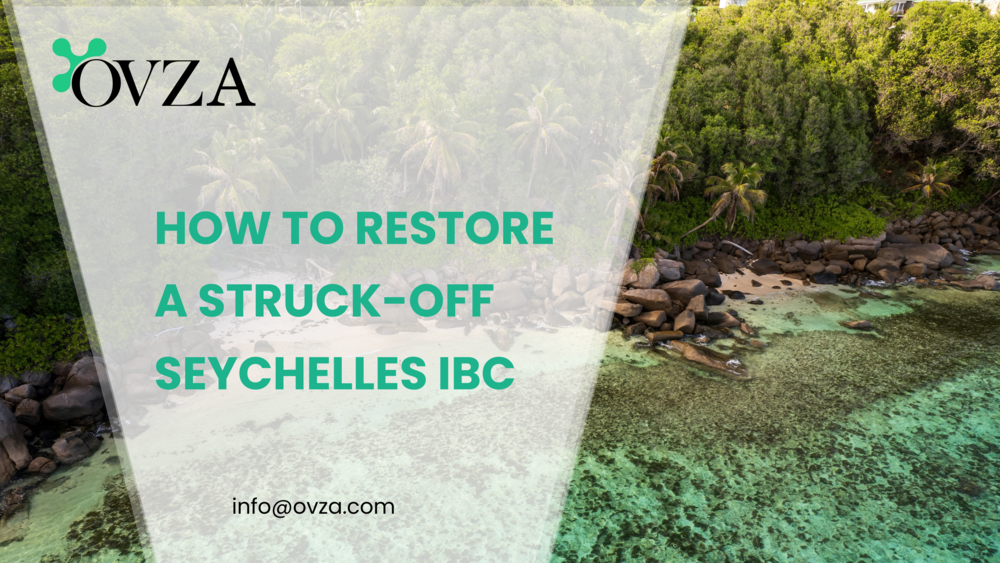Offshore entities in trade must comply with WTO rules, OECD BEPS, and EU laws on customs, anti-avoidance, and cross-border structuring. As global commerce becomes increasingly complex, the role of offshore entities in international trade has evolved from mere tax structuring tools to key facilitators of cross-border operations. From holding intellectual property to managing international procurement and licensing, offshore companies are now firmly embedded in the legal and logistical infrastructure of global trade. But with that strategic value comes a web of legal obligations governed by international trade law, customs compliance, and anti-avoidance measures.
1. Legal Standing of Offshore Entities in Trade
Offshore entities, though legally incorporated in jurisdictions like the British Virgin Islands, Seychelles, or Belize, are frequently used to conduct import-export transactions, supply chain management, and global procurement. However, when these entities engage in international trade, they must comply with the same legal frameworks that apply to domestic companies, particularly in relation to customs declarations, valuation of goods, and sanctions screening.
For instance, a Seychelles IBC acting as a trading intermediary in Asia may enjoy legal tax benefits under its home jurisdiction, but that does not exempt it from World Trade Organization rules or the customs regulations of the importing country. Trade law applies based on the movement of goods and services, not on the tax status of the entity. This is particularly important in regions like the European Union, where value-added tax (VAT), tariff classification, and preferential origin rules must be properly applied, regardless of whether the supplying party is based offshore.
It is also important to understand how double taxation treaties (DTTs) and free trade agreements (FTAs) intersect with offshore finance. While many offshore jurisdictions are not signatories to major DTTs or FTAs, companies structured through those jurisdictions often attempt to benefit by setting up intermediary entities in treaty-participating countries. These hybrid structures must be carefully vetted to avoid breaching anti-abuse provisions, such as the Principal Purpose Test (PPT) under the OECD’s BEPS initiative.
2. Compliance Risks in Offshore Trade Operations
Offshore entities operating in international trade face a heightened level of legal scrutiny. While these structures offer strategic advantages—such as confidentiality, asset protection, and tax neutrality—they are increasingly monitored under international legal instruments aimed at preventing money laundering, trade-based tax evasion, and illicit financial flows. One of the primary risks arises when offshore entities are used as shell companies in global supply chains without sufficient economic substance. In many jurisdictions, customs and tax authorities may re-characterize such arrangements and impose backdated duties, taxes, or penalties.
For example, if a British Virgin Islands company invoices goods from a Chinese supplier to an EU customer but does not physically handle the goods or add economic value, European customs authorities may question the transaction’s legitimacy under origin rules or transfer pricing regulations. In some cases, the offshore entity could be disregarded for customs valuation purposes, resulting in additional duties or denial of preferential tariff treatment.
Another area of concern is the application of export controls. Offshore entities that re-export technology or dual-use goods may fall under the export laws of the country where the products originate. U.S. export control laws, including the Export Administration Regulations (EAR), have extraterritorial reach and can apply to offshore companies dealing in U.S.-origin technology even if the transaction takes place outside U.S. territory. Violating such controls can result in severe penalties and trade blacklisting.
Additionally, the global crackdown on abuse of trade agreements has led to increased scrutiny of offshore structures involved in complex routing schemes. Customs authorities in the EU, the United States, and other major economies now rely heavily on data-sharing agreements and digital tracking systems to uncover artificial arrangements. Offshore companies that rely on trans-shipping, under-invoicing, or layered ownership structures may find themselves flagged for audits or investigations, especially in countries with robust enforcement regimes.
3. Evolving Legal Standards and Offshore Trade Structuring
As governments and international bodies continue to emphasize transparency and regulatory cooperation, the legal standards governing offshore entities involved in trade have become more stringent. One of the most impactful developments has been the implementation of the OECD’s Base Erosion and Profit Shifting (BEPS) measures, which directly affect how offshore companies must demonstrate real economic activity. The BEPS framework, specifically Action 5 and Action 6, targets harmful tax practices and treaty abuse—both of which are commonly associated with improperly structured offshore trading vehicles. A summary of these initiatives is available on the OECD’s official site.
Furthermore, the World Trade Organization (WTO) continues to define key legal parameters for trade facilitation, non-discrimination, and origin compliance. Offshore entities engaging in international trade are expected to follow these WTO principles even if their home jurisdictions are not formal members. A comprehensive breakdown of WTO rules and trade disciplines can be accessed on the WTO’s legal texts page.
In the European Union, offshore trading companies face additional barriers under the Union Customs Code (UCC), which enforces strict valuation, customs duty, and reporting requirements. EU regulators have also intensified enforcement against perceived abuse of offshore structures in VAT fraud and customs evasion schemes. Offshore companies selling to or from the EU must therefore carefully examine the legal framework in each member state, in addition to meeting Union-wide regulations.
A recurring legal theme is the erosion of anonymity. Offshore entities are increasingly required to disclose their beneficial owners under a growing web of laws including the EU 5th AML Directive, FATF guidelines, and domestic laws like the U.S. Corporate Transparency Act. These developments reinforce that using offshore companies in trade must not only be structurally valid but also legally defensible.
Ultimately, the intersection of offshore entities and international trade law is no longer an obscure corner of finance but a central pillar in the broader movement toward legal accountability in global commerce. Businesses that rely on offshore structures must now build them with precision, legal foresight, and an awareness of the increasingly interconnected regulatory environment. Failing to do so may expose them not only to tax penalties but also to reputational harm, frozen assets, or even criminal prosecution.
Conclusion
Offshore entities remain vital tools in the architecture of international trade, offering flexibility, tax efficiency, and cross-border structuring benefits. However, their legal use in global commerce is now framed by increasingly rigorous standards under trade law, tax treaties, customs enforcement, and global transparency initiatives. The days of using offshore companies purely for opacity or regulatory arbitrage are over. Today’s legal environment demands substance, proper documentation, and full compliance with international trade regulations.
Companies leveraging offshore structures must ensure that their operations align with WTO rules, regional trade agreements, and evolving anti-abuse legislation. They must also remain alert to regulatory updates issued by institutions like the OECD, WTO, and European Commission, as well as domestic authorities with extraterritorial reach.
For those seeking to use offshore entities as part of a legitimate global trade strategy, the key is to work with knowledgeable legal professionals, understand the rules in all relevant jurisdictions, and adopt structures that meet both business and compliance needs.
By treating offshore structuring not as a shortcut but as a sophisticated legal solution, international businesses can continue to thrive in global trade—while remaining fully aligned with the law.
Disclaimer: The information provided on this website is intended for general reference and educational purposes only. While OVZA makes every effort to ensure accuracy and timeliness, the content should not be considered legal, financial, or tax advice.


